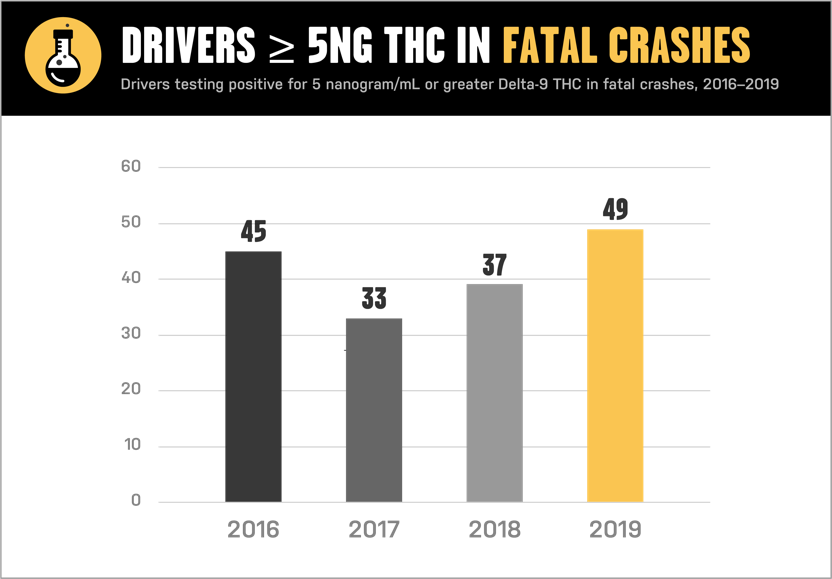Resources
Colorado state tax revenue from the legal cannabis industry surpassed $2 billion in January and the state has collected more than $88.7 million in fees.
In addition to state and local taxes and fees, cannabis businesses have an effective federal tax rate of about 70% – compared to about 26% for other businesses.
Did you know Colorado legal cannabis dispensary owners are unable to deduct normal business expenses like payroll and rent from their federal income taxes?
Marijuana has contributed over $320 Million dollars to Building Excellent Schools Today (B.E.S.T.), making up about 25% of the program's entire budget.
In FY 21-22 alone, nearly $15.3 million in state cannabis dollars went to state Affordable Housing Grant and Loans.
The Marijuana Tax Cash Fund collected $188.8 Million in FY 2021-22 alone.
In FY 21-22 alone, nearly $15 million in cannabis dollars went to the School Health Professional Grant program.
More than $15 million in cannabis dollars went to substance abuse treatment in FY 21-22.
More than $1.6 million cannabis dollars went to the Tony Grampsas Youth Services Program in FY 21-22.
Voters in 59 of 64 Colorado counties voted no on Proposition 119 sending a clear message against raising taxes on cannabis consumers.
Unlike other legalized substances, the marijuana industry has a 97% compliance rate for unauthorized sales.
Unlike alcohol, research has proven you can only get “so high.” Cannabinoid receptors in your brain eventually prevent the body from getting further intoxicated.
Did you know? Since legalization in 2005, teen use in Colorado has remained flat and is below the national average.
According to a recent poll by the Pew Research Center, more than 90% of Americans think cannabis use should be legal.
Did you know? MIG represents more than 400 cannabis business licenses across the state.
A 2021 study found that medical cannabis use was associated with clinical improvements in pain, function, and quality of life with reductions in prescription drug use.
Founded in 2010, MIG is the oldest and largest trade association for licensed cannabis businesses.
Colorado’s marijuana model has become the example for all other regulated cannabis states, and MIG works directly with policy makers to ensure that Colorado’s program is fair, tightly regulated, safe, and successful.
Safe Sales: Every marijuana sale in CO takes place on camera and requires multiple ID checks.
All regulated marijuana in Colorado is tracked from “seed to sale,” with oversight from the Marijuana Enforcement Division.
Established in 2010, MIG has led legislation for child resistant packaging, customer safety resources, and purchase restrictions for 18-20 year olds.
Marijuana is taxed at both state and local levels. This year Aurora built a new $34 Million dollar rec center, fully funded by local marijuana taxes.
The marijuana industry suffers from unfair Federal tax rules, which means that MIG members’ effective tax rates are around 71%.
A 2019 study showed that crime does not increase with legalization.
Conditions for medical marijuana
Cancer - Glaucoma - HIV or AIDS - Cachexia - Persistent muscle spasms - Seizures - Severe nausea - Any condition for which a physician could prescribe an opioid - Autism Spectrum Disorder - Severe pain - PTSD
Most marijuana businesses have access to banks, but because marijuana is still federally illegal, businesses are unable to access merchant processing services such as VISA or Mastercard.
Consuming higher potency marijuana does not lead to higher levels of impairment.
-- Journal of the American Medical Association (JAMA) 2020
71% of Colorado voters favor marijuana legalization. This has increased 10 points in the last four years alone.

Mask a budtender: CDOT and MIG introduce masks encouraging cannabis consumers to avoid impaired driving
MIG Press Release
April 8, 2021
Mask a budtender: CDOT and MIG introduce masks encouraging cannabis consumers to avoid impaired driving
Marijuana-linked arrests and fatal crashes increasing
STATEWIDE — The Colorado Department of Transportation and the Marijuana Industry Group (MIG) are collaborating to educate consumers about the risks and cost of cannabis-impaired driving with an in-your-face conversation starter — budtender masks.
In partnership with Native Roots and Lightshade, CDOT and MIG are distributing masks to select dispensaries with the message, “I’ll be blunt. Don’t drive high.” to remind the public about staying safe.
Link to media kit: https://www.dropbox.com/sh/qmseicbtuk07821/AACEzrvhZxJuMslYX_XbhdU2a?dl=0
“Impaired driving continues to be a top cause of crashes, injuries and fatalities on Colorado’s roadways,” said CDOT Communications Manager Sam Cole. “While alcohol is still the most common impairing substance, recent data shows an increasing number of fatal crashes involving impairment from cannabis. In response, CDOT is building on past successful partnerships with the cannabis industry — we are ramping up our efforts to help the cannabis industry and its customers be better informed about alternatives to driving high.”
The masks are part of a broader industry education effort — CDOT and MIG are also cooperating to distribute a new series of educational materials at dispensaries, creating tools for industry training programs and working with municipalities, prevention organizations and law enforcement.
“Colorado’s public safety work has become the model for other states that have legalized cannabis — and the safety of our patients, consumers, and communities is extremely important,” said MIG Executive Director Truman Bradley. “Cannabis consumers view representatives of cannabis businesses as trusted voices and a reliable source of information, which is why MIG members and others in the industry are excited to help spread the message. It’s very simple: Don’t Drive High.”
While no single indicator can fully explain how cannabis consumption impacts road safety, CDOT closely monitors all available data to address impaired driving.
According to Colorado State Patrol arrest data, there was a 6.7% increase in cannabis-only DUI arrests in 2020 compared to 2019. More concerning, there was a 90.1% year-over-year increase in arrests for drivers impaired by cannabis and alcohol, and a 17.1% increase in impaired driving arrests involving cannabis and other substances.
The number of drivers involved in fatal crashes — and who were blood tested — with active Delta-9 THC above the legal limit of 5 nanograms increased from 33 in 2017 to 49 in 2019.
While trace amounts of Delta-9 THC don’t necessarily equate to impairment, the substance is appearing in driver toxicology tests more often. In 2019, of the 416 fatalities where a driver was tested for Delta-9, 25% tested positive — up from 20% in 2016.
A National Highway Traffic Safety Administration analysis of 60 studies concluded that cannabis use impairs the skills connected with the safe driving of a vehicle, such as tracking, muscle coordination, visual functions, and particularly, complex tasks that require multitasking. To view more research from NHTSA and partners, visit feeldifferentdrivedifferent.org/severity-of-impairment.
Through extensive public outreach to Colorado cannabis consumers as part of CDOT’s The Cannabis Conversation, consumers often voiced that industry representatives are among the most trusted messengers for cannabis education.
“Whether choosing alcohol or cannabis, it has never been easier for consumers to make responsible choices and to plan ahead,” said Shannon Fender, Director of Public Affairs for Native Roots. “We’re hopeful our ongoing partnership with CDOT will continue to bring awareness to our customers that driving while impaired on any substance is never acceptable and has serious legal and public safety consequences. We ask all our patients and customers to be thoughtful and responsible members of our shared communities - please never drive high.”
To learn more about CDOT’s new campaign and view creative materials, visit DriveHighDUI.com.
ABOUT CDOT
CDOT’s Whole System-Whole Safety program has one simple mission — to get everyone home safely. Our approximately 3,000 employees work tirelessly to reduce the rate and severity of crashes and improve the safety of all modes of transportation. The department manages more than 23,000 lane miles of highway, more than 3,000 bridges and 35 mountain passes. CDOT also manages grant partnerships with a range of agencies, including metropolitan planning organizations, local governments and airports. It also operates Bustang, the state-owned interregional express bus service. Gov. Jared Polis has charged CDOT to further build on the state’s intermodal mobility options.
###










